Lip reading expert to be called in Lehrmann defamation trial over Brittany Higgins interview
A lipreading expert will be allowed give evidence on CCTV of Bruce Lehrmann and Brittany Higgins speaking at a bar on the night she alleges she was raped, a court has ruled.
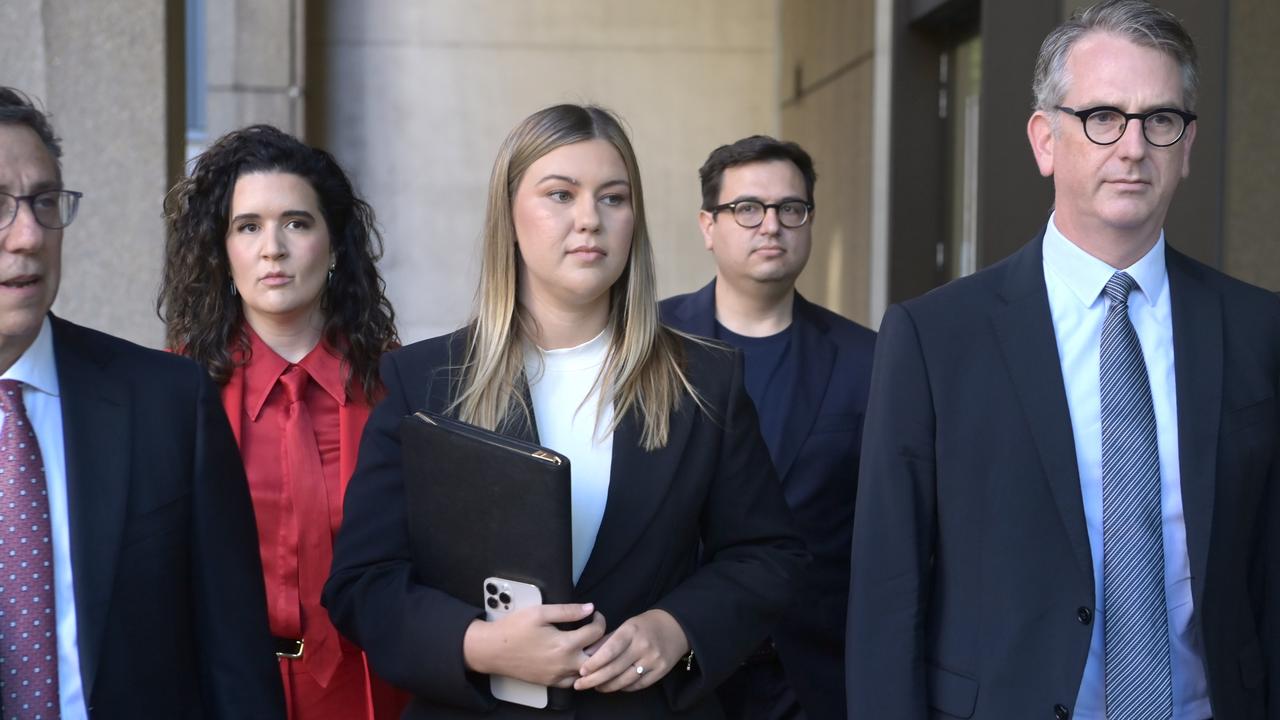
Network 10 will be allowed to call an English lip-reading expert in its Federal Court legal battle with Bruce Lehrmann in a bid to prove what was said between the ex-political staffer and Brittany Higgins at a bar on the night which she alleges she was raped.
Bruce Lehrmann has launched proceedings in the Federal Court against the network and its journalist, Ms Wilkinson, over Ms Higgins’ interview on The Project in February 2021 in which she alleged she was sexually assaulted in Parliament House by her former colleague.
Mr Lehrmann has consistently denied the allegations and has told the court he had no sexual contact with Ms Higgins in Senator Linda Reynolds’ office in the early hours of March 23, 2019.
His criminal trial in the ACT Supreme Court last year was aborted due to juror misconduct and a retrial was abandoned. No findings have been made against him.
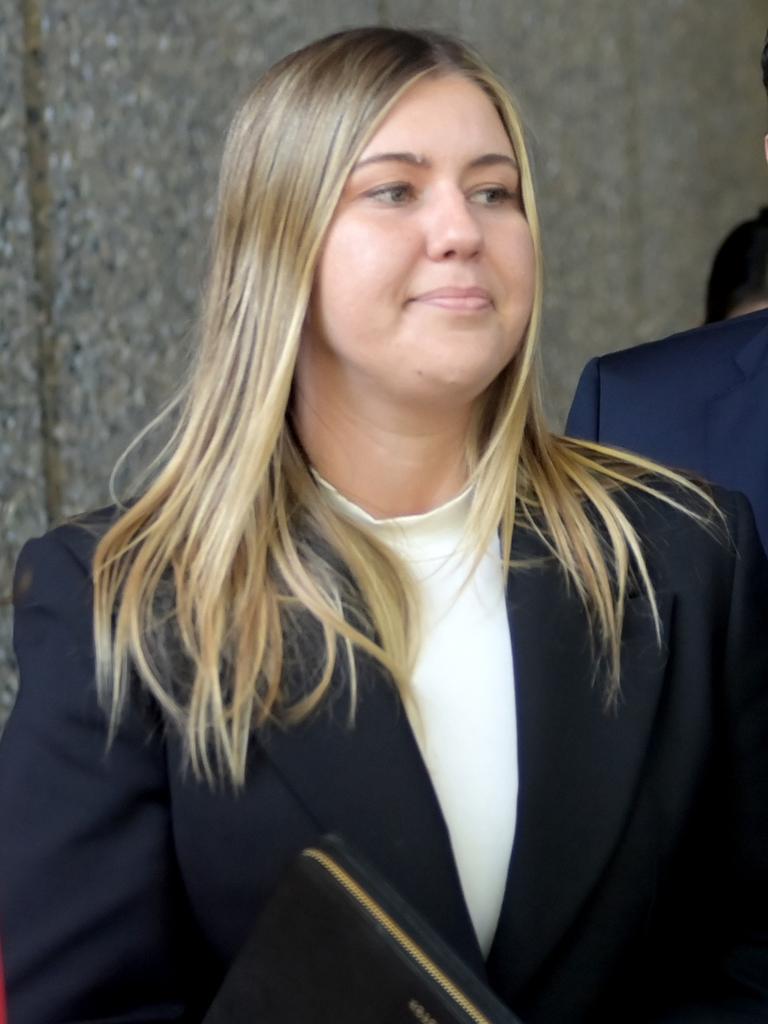

THE LIP READER
Mr Lehrmann’s legal team on Friday afternoon attempted to block Network 10 from calling forensic lip-reading expert Tim Reedy to give evidence.
The court has heard the network was attempting to tender a report, compiled by the UK-based expert, about what was said between Mr Lehrmann and Ms Higgins at The Dock bar on the night of the alleged assault.
The court heard that Mr Reedy had been profoundly deaf from the age of four and had taught himself to lip read.
Mr Lehrmann’s lawyers attempted to block the report, with barrister Nicholas Olson arguing that lip-reading wasn’t a field of specialised knowledge.
He also noted that the expert, being English and having been deaf since his youth “probably hasn’t heard an Australian accent before, let alone a drunk Australian.”
Ten’s barrister Dr Matt Collins KC argued of the Australian accent: “It’s exotic, but not that exotic.”
In handing down his ruling on Friday afternoon, Justice Lee said that Mr Reedy could be cross examined on the topic of whether he is familiar with Australian accents.
“I do not believe I will be misled or confused by the evidence,” Justice Lee said.
Justice Lee also rejected the argument that just because a skill was not based on study or experience, doesn’t mean it can’t be a field of specialised knowledge.
“It is plain that specialised knowledge may exist which is not scientific, one must not lose sight of the fact that specialised knowledge can be gained from experience,” Justice Lee said.
In allowing Mr Reedy’s expert in, Justice Lee noted that he would not necessarily be swayed by the report.
“My ruling allowing this evidence to be adduced is not to say that I will regard the evidence as being of great weight,” Justice Lee said.
“This will depend, in part, on the conclusions I draw, upon the foreshadowed cross examination of the expert.”
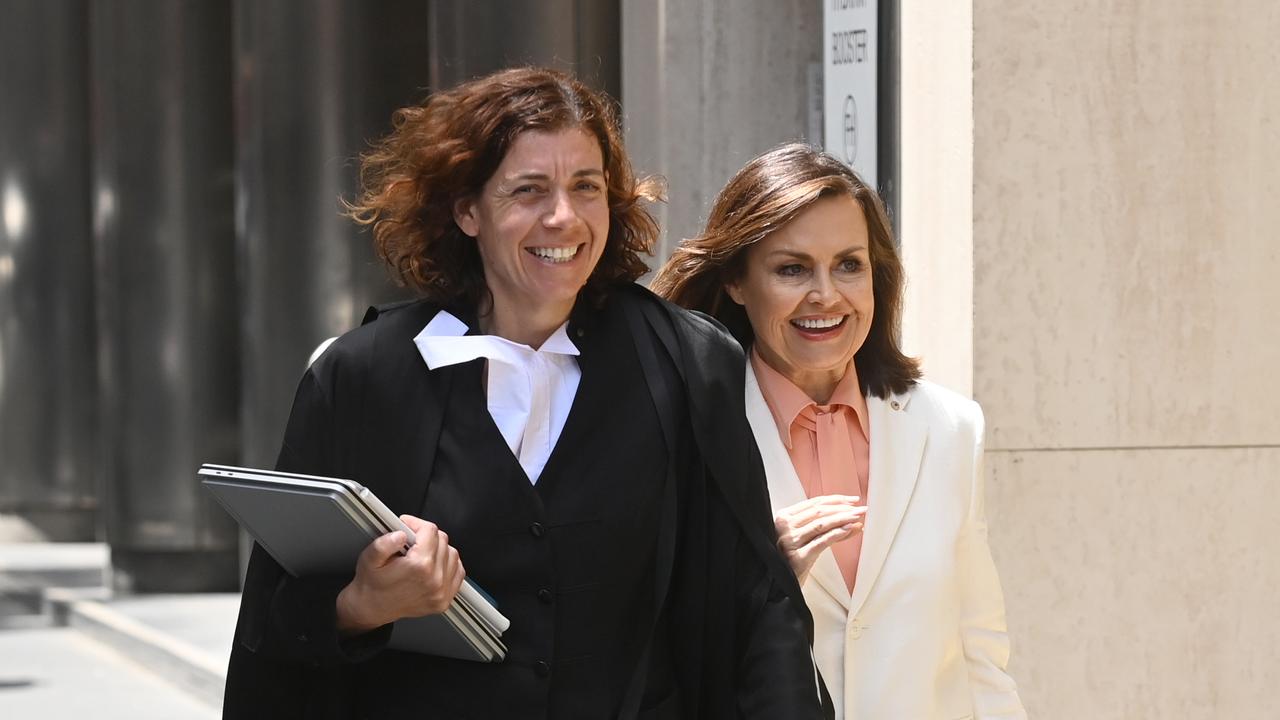
“TUG OF WAR”
Rape crisis counsellor Kathryn Cripps told the court on Friday that she first met Ms Higgins at a police “meet and greet” on April 8, 2019 at the Winchester Police Centre, where she acted as an advocate for her.
“There was a lot of distress on her behalf, she was very tearful but she tried very hard to remain composed,” Ms Cripps told the court on Friday.
“But there were times when she couldn’t and tears just flowed intensely.”
Asked if anything in particular caused Ms Higgins distress during the meeting, Ms Cripps said it was when Detective Senior Constable Sarah Harman explained to her the “rights” of the alleged “perpetrator”.
“She really flooded,” Ms Cripps said.
The court heard that Ms Cripps also had five to seven counselling sessions with Ms Higgins and about 100 contacts with her via email, text and phone calls.
Ms Cripps told the court that Ms Higgins “desperately” wanted to report the alleged sexual assault but there was a “tug-of-war” going on in her mind.
She said that Ms Higgins expressed to her that she was worried about the possibility of losing her job.
“Each time I saw her it was about her distress at wanting two different things and they weren’t congruent,” Ms Cripps said.
“She’d only been in the ACT six months … This was her dream job and she wanted a career in this area.”
Ms Cripps added: “She told me that she knew that if she brought this to anyone’s attention she would lose her job. She was clear about that.”
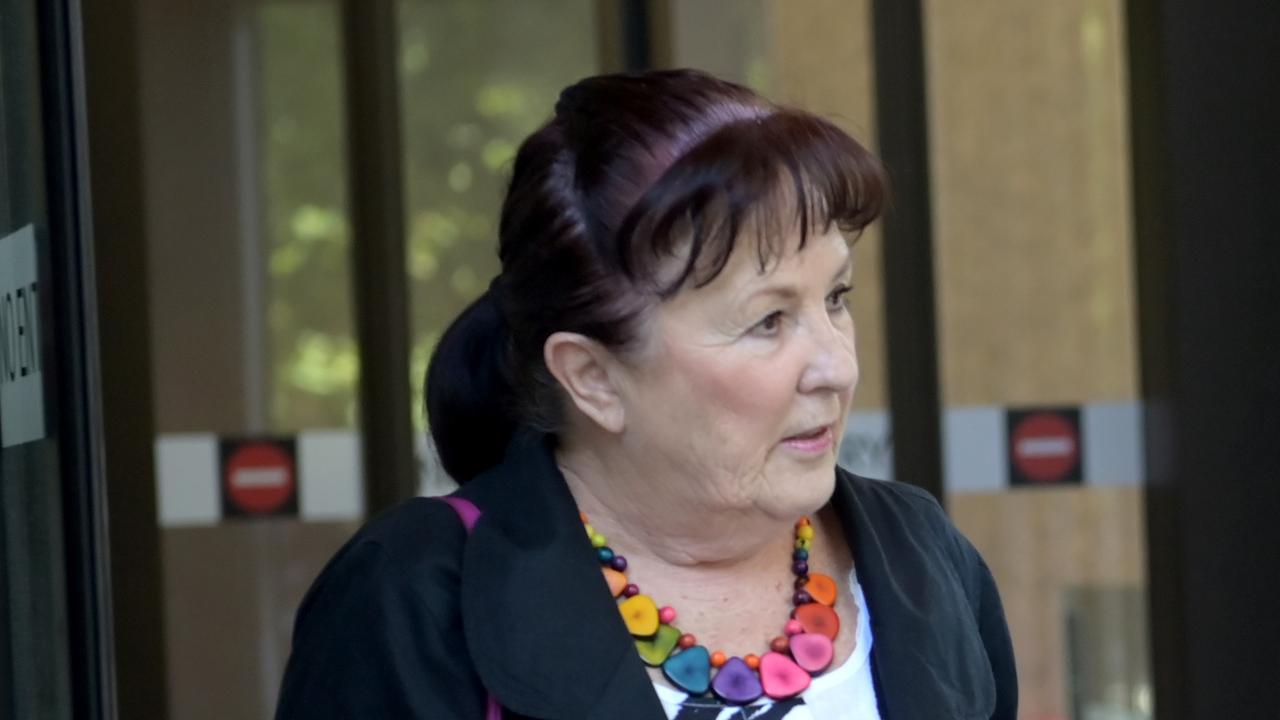
THE POLICE INVESTIGATION
Detective Senior Constable Sarah Harman was attached to the ACT Police Sexual Assault and Child Abuse unit in April 2019 when she was involved in the early stages of investigating Ms Higgins’ complaint.
She told the court on Friday she was asked to meet with Ms Higgins as part of the “meet and greet process”.
Ms Harman told the court that she had been informed by an Australian Federal Police officer Ms Higgins “didn’t want to proceed at that time but did want further information about her options.”
As part of the investigation she obtained CCTV from the Dock, the bar at which Ms Higgins and Mr Lehrmann drank on the night of the alleged assault.
Ms Higgins was collected from Parliament House and went to Winchester Police Centre where she was interviewed.
“She told me that sexual intercourse had taken place without her consent,” Ms Harman told the court.
Ms Harman said she was told that Ms Higgins had photographs of Mr Lehrmann and herself from that night.
Ms Higgins had also said that protection was not used during the alleged sexual assault, Ms Harman said.
During the meeting, Ms Higgins told the officer about the white cocktail dress which she wore the night of the alleged sexual assault.
Ms Harman said she had told Ms Higgins she wanted to obtain it.
“She stated to me it was under her bed in a bag, and that is where it would remain,“ Ms Harman said.
Asked about Ms Higgins’ demeanour in the meeting, Ms Harman said she was “articulate, coherent, she was upset but she wasn’t crying”.
She observed there was “nothing out of the ordinary about her demeanour”, and that Ms Higgins seemed “anxious” but said she was “happy to be speaking to someone about it”.
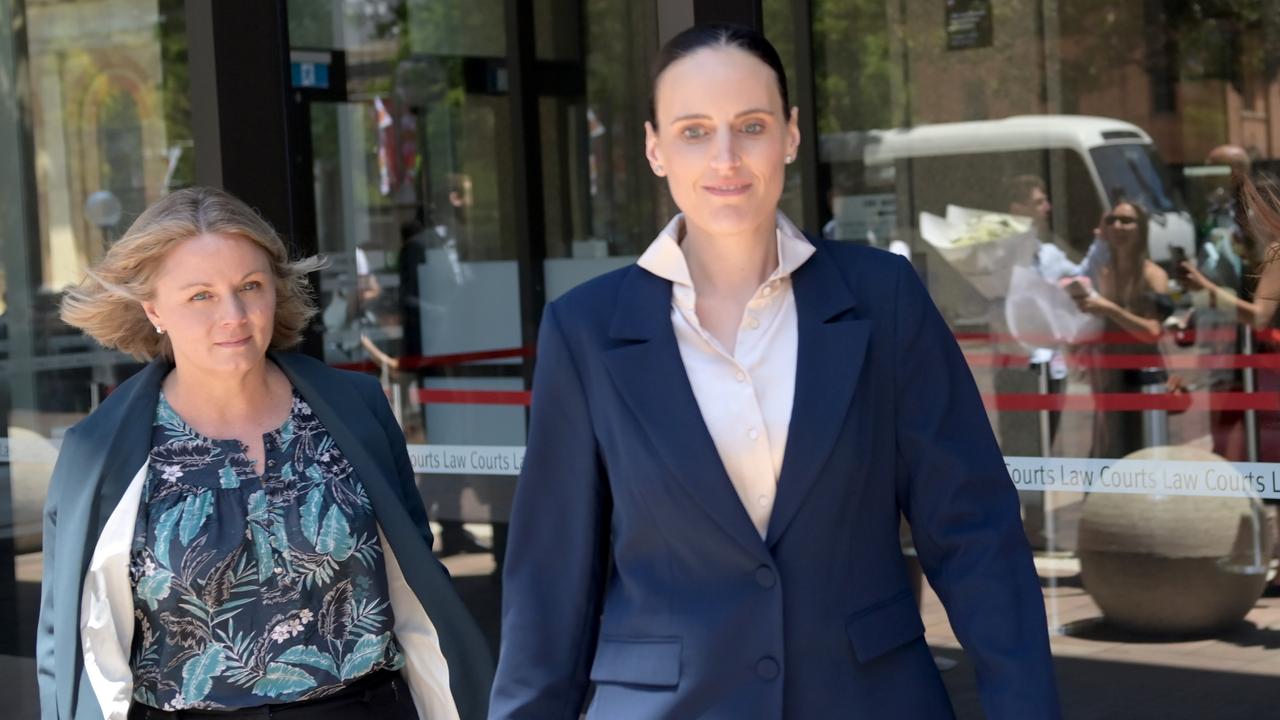
FRUSTRATING
Ms Harman told the court she on several occasions attempted to obtain CCTV from Parliament House from the night of the alleged sexual assault.
Another AFP officer provided her with a summary of what was on the footage.
However Ms Harman said she was told that it would not be able to be viewed again until after the election.
“It was frustrating … I hadn’t had any investigations involving Parliament House I guess - but I never encountered such pushback on obtaining CCTV before. It was incredibly frustrating,” she said.
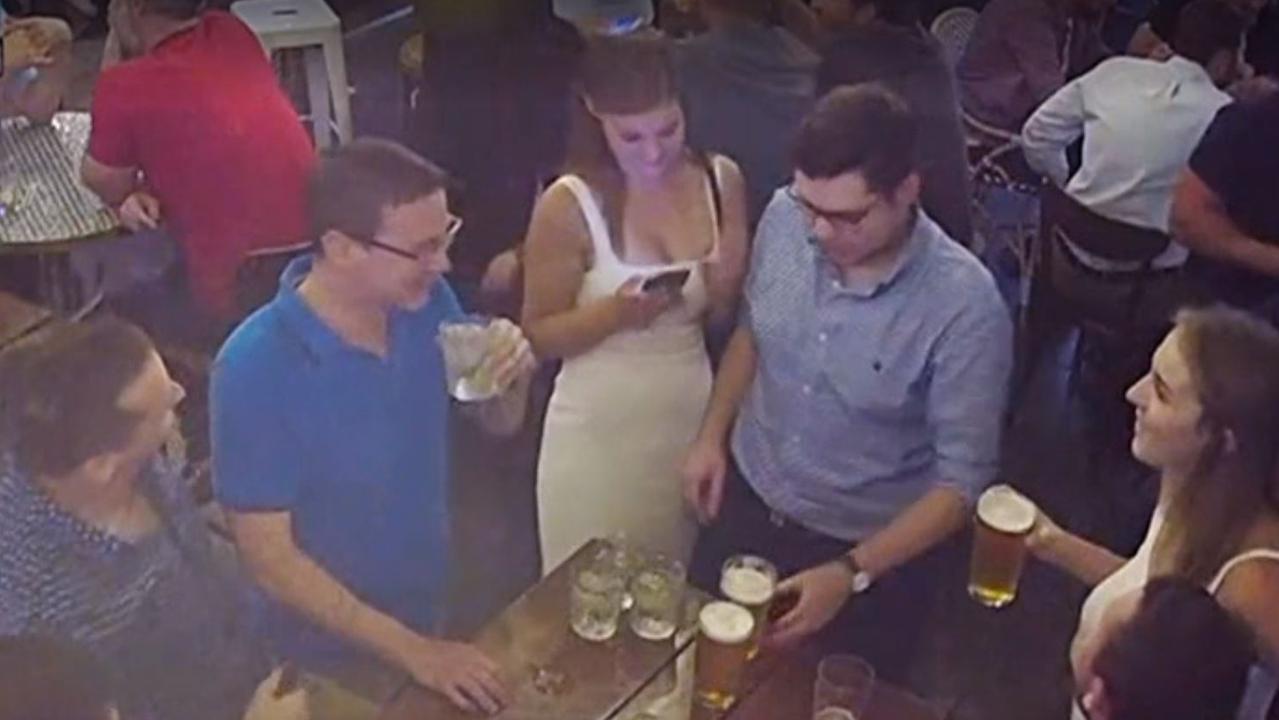
“HYSTERICAL”
Ms Higgins emailed Ms Harman on Saturday April 13, 2019 informing her that she did not want to pursue a police complaint.
“After careful consideration I have decided not to proceed any further in this regard,” Ms Higgins said in the email.
“I really appreciate your time, professionalism and assistance with this complaint. You helped more than you know. It’s just not the right decision for me personally, especially in light of my current workplace demands. Thank you again for your candour and I apologise if I’ve taken up much of your time. Kind regards, Brittany”
Several months later, in October 2019, Ms Harman said she was told by a senior officer that the AFP had received a media inquiry and the matter might be raised in Senate Estimates.
Ms Harman said she was asked to call Ms Higgins to inform her.
“She was hysterical at that point, she was very difficult to understand, she was clearly crying in that conversation with me,” Ms Harman said.
“She hung up abruptly.”
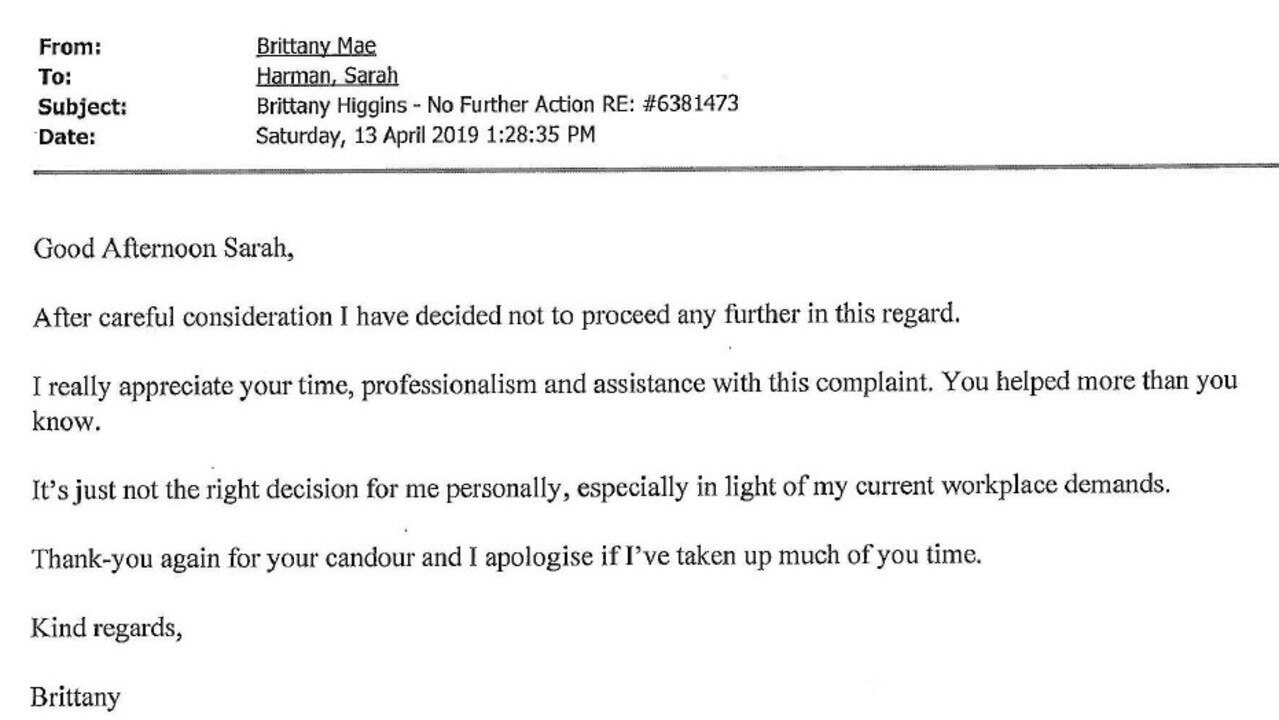
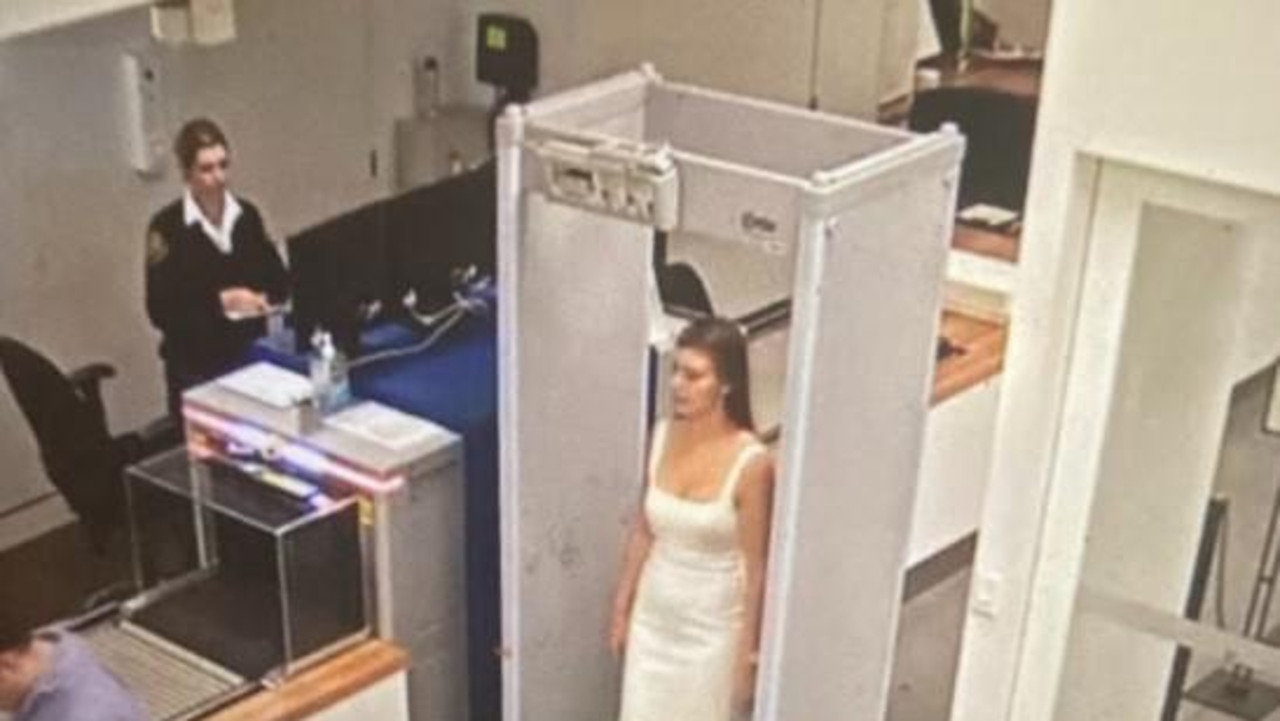
THE PAYOUT
The court previously heard Ms Higgins was paid compensation after last year settling her personal injury claim with the Commonwealth following mediation.
During her evidence, she said the gross settlement was for approximately $2.3m and after paying legal fees and taxes, she received $1.9m.
“I received 1.9 million … I think around 2.3 (million) was the amount and then there were taxes and the lawyer took some,” Ms Higgins previously said during her evidence.
The deed of settlement and release reveals that she received $400,000 for hurt, distress and humiliation, $1.48m for her loss of earning capacity, $220,000 for medical expenses, $100,000 for “past and future domestic assistance” and $245,000 for her legal costs.
In total she received $2,445,000 from the government.
The court on Thursday released the deed of settlement after Justice Michael Lee agreed to redact several pieces of personal information.
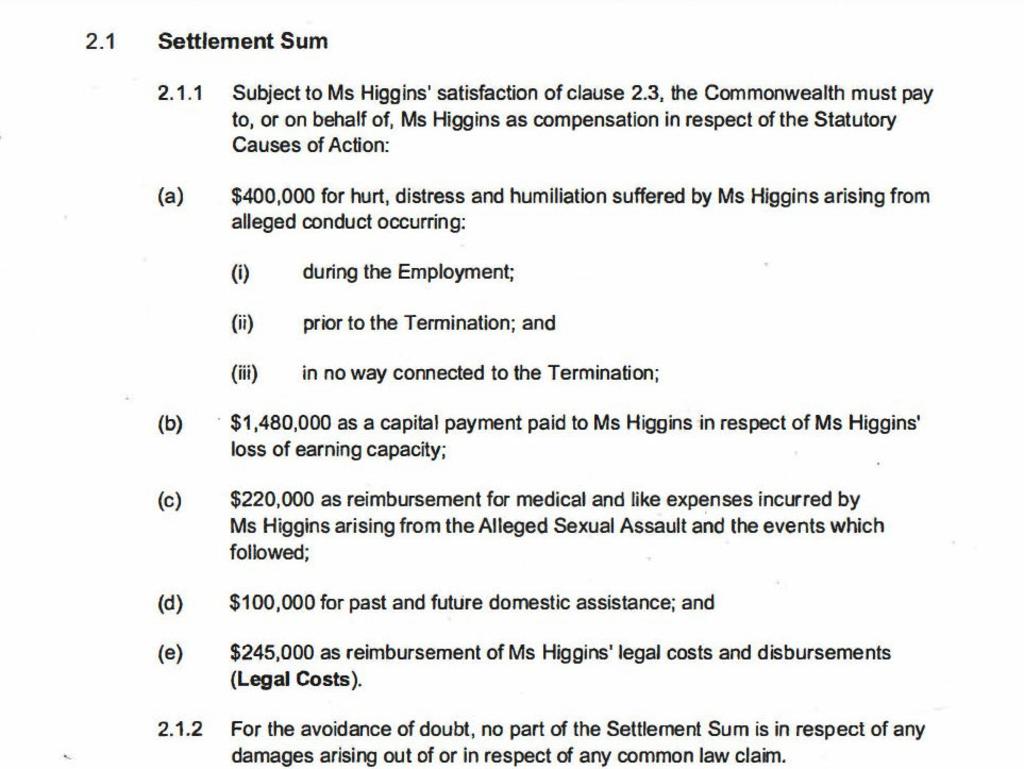
Her barrister Nicholas Owens appeared before the court on Thursday arguing: “To have her very personal information disclosed when it is not a relevant issue in the proceedings, we say are the fundamental (for the reasons) to make these order.”
Justice Lee agreed to redact parts of the documents which pertained to Ms Higgins’ medical records and bank details.
However he denied an application to make further redactions over parts of the deed which included her signature.
During her evidence, she claimed that the government had admitted they breached their duty of care.
“Yes I received money from the Commonwealth, they made an agreement that a failure of duty of care was made,” Ms Higgins told the court previously.
“And they did pay me.”
However, the deed of settlement stated: “The parties acknowledge and agree that this deed is made without any admission of liability by any of the beneficiaries.”




